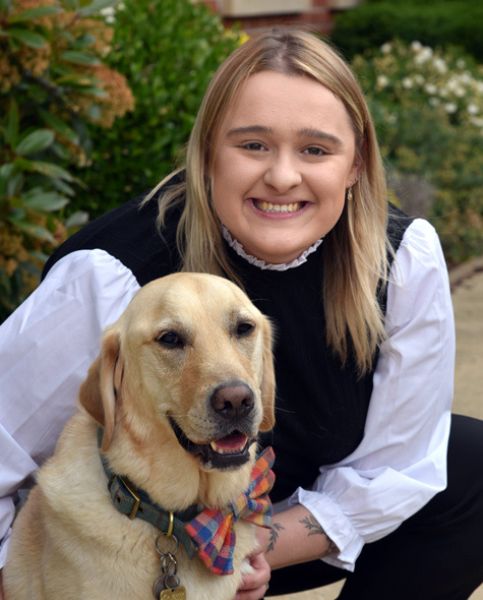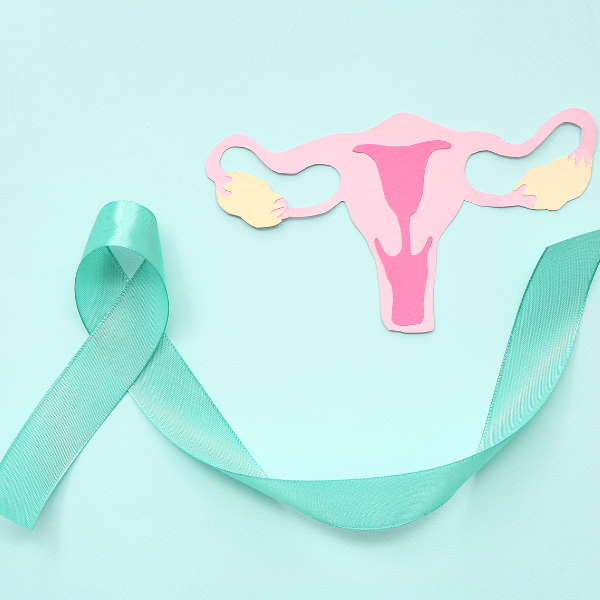National Heart Awareness Month: A Different...
Anaesthesia Errors Compensation Claims.
Waking up from surgery with unexpected pain, confusion, or long-term symptoms can be frightening, especially when you trusted your medical team to keep you safe.
Anaesthesia is one of the most critical parts of modern surgery, designed to prevent pain and distress during medical procedures. But when anaesthetic care falls below acceptable standards, the consequences can be life-altering. From incorrect dosages and failed monitoring to equipment errors or failure to respond to vital signs, anaesthesia negligence can lead to serious complications, including nerve damage, brain injury, and, in the most severe cases, permanent disability or loss of life.
At Lanyon Bowdler, we understand how traumatic it can be to suffer harm during surgery. Whether you’re dealing with physical symptoms, cognitive difficulties, or emotional distress following an anaesthetic error, we’re here to help. Our nationally recognised Medical Negligence Team has specialist experience in Anaesthesia Negligence Claims, and we’ll guide you with expertise, compassion, and a strong focus on your recovery.
We act on a no-win, no-fee basis, so you won’t face financial risk in coming forward. Speak to our team today to find out how we can help you secure answers, support, and the compensation you deserve.
What is an Anaesthesia Error?
An anaesthesia error is a mistake made during the administration or management of anaesthesia before, during, or after a medical procedure. Various factors can contribute to anaesthetic errors, such as miscalculations in drug dosage, improper monitoring of the patient, or equipment malfunction. As anaesthesia is critical in ensuring that patients are unconscious, sedated, or pain-free during medical procedures and surgery, any error can have severe consequences for their health and wellbeing.
Anaesthesia errors can include giving too much or too little anaesthetic, leading to complications such as anaesthesia awareness (when a patient regains consciousness during surgery), brain damage caused by insufficient oxygen supply, or adverse reactions due to allergies not properly accounted for. Errors might also involve incorrect placement of epidurals or nerve blocks, which can result in nerve damage, paralysis, or severe pain.
Such errors are often considered medical negligence if they occur due to lapses in standard medical care, such as failing to properly review a patient’s medical history, inadequately monitoring vital signs, or neglecting to maintain safe and sterile equipment. When these mistakes cause harm, patients may be entitled to compensation for their injuries, financial losses, and emotional suffering.
Our Anaesthesia Error Compensation Expertise
Choosing Lanyon Bowdler for your anaesthesia error claims offers many benefits. We are renowned for our expertise in medical negligence, with a nationally recognised team. We pride ourselves on combining legal excellence with a compassionate approach, tailoring our services to meet the unique needs of each client.
The Medical Negligence Department is recognised in Tier One for the West Midlands in the 2025 edition of the Legal 500, which states, “The ‘efficient and pragmatic’ team at Lanyon Bowdler adopts a ‘truly personal approach’ when dealing with cases.”
The Chambers UK guide 2025 ranks the department in Band One for the Midlands; it states, ‘Lanyon Bowdler Solicitors has an impressive practice group with a growing presence across the West Midlands. The team offers specialist advice across the full gamut of clinical negligence mandates, with particular experience in cases of surgical error, delayed diagnosis and failure to supervise those at risk of suicide. The firm is additionally skilled in cases relating to post-surgical negligence, brain injury and fatal claims.’
We have a wealth of expertise and experience in medical negligence cases, including general knee surgery and knee replacement surgery. We are able to offer a personalised service tailored to your individual needs, ensuring you feel supported and informed throughout the legal process and beyond. Lanyon Bowdler has a proven history of successful settlements, seeking the optimal outcome for each of our clients.
With offices in Shropshire, Herefordshire and North Wales, we are able to represent clients wherever they may live in England or Wales. Our emphasis on achieving maximum compensation, combined with our client-first ethos, makes us a trusted partner in medical negligence cases. Our high level of expertise, accessibility, and compassionate care, ensure you have the best possible support during a challenging time.
We understand the emotional and physical challenges faced by individuals and their families affected by anaesthesia errors, and we aim to make the claims process as straightforward as possible, offering support throughout the journey. We provide clear guidance on funding options, including “no win, no fee” agreements, meaning you can pursue justice without financial worries, ensuring expert legal support is available to everyone.
If you have been injured due to medical negligence, it is crucial to speak to a specialist solicitor. They will be able to advise you on whether you are eligible to pursue a No Win No Fee medical negligence claim and will help you through the process every step of the way.
Your Anaesthesia Error Claims questions answered
There are several types of anaesthesia, each suited to different medical procedures and patient needs:
- General Anaesthesia: This is used for major surgeries, inducing complete unconsciousness and loss of sensation. It ensures that the patient is unaware and immobile during the procedure. It is typically administered through inhalation or intravenous drugs and requires constant monitoring to maintain the patient’s vital functions.
- Regional Anaesthesia: This type numbs a specific area of the body while keeping the patient awake. It includes epidural and spinal anaesthesia, and nerve blocks.
- Local Anaesthesia: This numbs only a small area, making it ideal for minor procedures like dental work or skin surgeries. It’s applied through injections or topical creams.
- Sedation: Used for less invasive procedures, sedation helps patients relax while staying awake and responsive. This is often employed during procedures like endoscopies or dental work.
- Monitored Anaesthesia Care (MAC): A combination of local anaesthesia and light sedation, used for outpatient procedures that require patient cooperation but minimal discomfort.
- Topical Anaesthesia: Applied directly to the skin or mucous membranes to numb the surface, commonly used for minor interventions like inserting catheters or drawing blood.
The type of anaesthesia used depends on the procedure, the patient’s health, and the level of discomfort or immobility required. Each type has its own advantages in terms of recovery time, invasiveness, and patient safety.
Errors in anaesthesia can occur at any stage of its administration, from preparation to post-procedure monitoring. These mistakes often result from negligence or failure to follow proper procedures, leading to potentially life-threatening complications. The common types of anaesthetic errors include:
- Dosage Errors: Too much anaesthetic can lead to respiratory problems, brain damage, or even death; while too little may result in anaesthesia awareness, where the patient wakes up or feels pain during surgery.
- Equipment Failures: Anaesthesia relies on precise equipment to deliver gases or monitor vital signs. Faulty or improperly maintained machinery, such as ventilators or infusion pumps, can lead to oxygen deprivation or an incorrect dose being administered.
- Monitoring Failures: During anaesthesia, constant monitoring of a patient’s heart rate, oxygen levels, and blood pressure is critical. Neglecting to detect or respond to abnormal vital signs can result in hypoxia, cardiac arrest, or other complications.
- Improper Intubation: In procedures requiring general anaesthesia, intubation ensures the airway remains open. Errors during this process can cause damage to the throat, lungs, or vocal cords. In severe cases, failure to intubate correctly can block the airway, leading to oxygen deprivation and brain damage.
- Allergic Reactions: Administering anaesthetic agents without verifying a patient’s allergies or medical history can lead to anaphylaxis.
- Spinal or Epidural Errors: Mistakes in administering anaesthesia commonly used in childbirth or lower-body surgeries can lead to nerve damage, infection, or paralysis.
- Communication Failures: Poor communication among surgical team members can lead to errors such as administering the wrong drug, failure to monitor critical signs, or neglecting pre-existing medical conditions.
- Anaesthesia Awareness: Although rare, anaesthesia awareness occurs when a patient partially regains consciousness during a procedure, which can cause extreme physical pain and psychological trauma.
Anaesthesia errors can result in serious physical consequences, with varying levels of severity depending on the nature of the mistake. One of the most distressing outcomes is anaesthesia awareness, where a patient becomes conscious during surgery, potentially experiencing pain or distress. Other errors can lead to nerve damage, causing chronic pain or paralysis, or brain injuries due to oxygen deprivation, which may result in cognitive impairments or strokes. Miscalculations in anaesthesia dosages can also cause cardiovascular problems, such as arrhythmias or cardiac arrest. In rare cases, failure to manage allergic reactions to anaesthetic drugs can result in anaphylaxis, a life-threatening condition. These errors underscore the importance of precise anaesthesia administration to avoid severe, long-lasting impacts.
The psychological impact of anaesthetic errors can be profound. Patients who experience anaesthesia awareness may develop post-traumatic stress disorder (PTSD), characterised by flashbacks, nightmares, and heightened anxiety. This can make future medical procedures particularly distressing, leading to a cycle of fear and avoidance. Even in cases without awareness, complications resulting from anaesthetic errors can cause long-term psychological effects, including depression or chronic anxiety.
Anaesthesia errors can lead to prolonged recovery times as patients may require additional surgeries or treatments to address complications. This delays their return to normal activities and reduces their quality of life. The financial burden can also be significant, with costs for corrective treatments, rehabilitation, and lost income during recovery. In the most tragic cases, anaesthesia errors can result in death, either during the procedure or from complications like brain injury or cardiac arrest. Such outcomes cause immense emotional devastation for families and can lead to long-term financial insecurity due to the loss of income and support from the deceased.
If you suspect you’ve been a victim of anaesthesia negligence, there are several signs that may indicate something went wrong during the procedure. Anaesthesia awareness, where you regain partial or full consciousness during surgery, is one of the most distressing outcomes, often leading to psychological trauma like PTSD. Unexplained symptoms after surgery, such as difficulty breathing, dizziness, or confusion, may suggest improper anaesthesia administration or monitoring. Nerve damage can cause numbness, weakness, or paralysis, and may result from poor positioning or errors in regional anaesthesia. Ongoing respiratory problems or heart issues, such as arrhythmias or heart attacks, could indicate airway management or drug dosage errors. Allergic reactions to anaesthetic drugs, including swelling, rashes, or severe anaphylaxis, may occur if allergies aren’t properly managed. Lastly, unexplained or excessive pain after the procedure may point to inadequate anaesthesia or incorrect dosage. If you experience any of these symptoms, consulting a solicitor with expertise in anaesthesia negligence claims is crucial to assess whether you’ve been a victim of medical error.
Making a claim for anaesthesia negligence involves several crucial steps to ensure you receive appropriate compensation. The first step is seeking medical advice to diagnose any injuries caused by the negligence.
Next, consulting a specialist medical negligence solicitor is vital. We will evaluate your case, guide you through the process. To succeed, you must prove negligence by demonstrating that the anaesthetist failed in their duty of care, whether through incorrect administration of anaesthesia, inadequate monitoring, or mishandling complications. Expert medical opinion is necessary to support your case.
Gathering evidence, including medical records, witness statements, and expert opinions, strengthens your case. Once all evidence is prepared, your solicitor will assess your case and advise you on making a claim, outlining the compensation sought for medical costs, lost earnings, pain, and suffering. Most claims are resolved through settlements, but some may proceed to issue proceedings and trial if necessary.
If successful, compensation is awarded to cover damages such as corrective treatments, ongoing care, lost income, and emotional distress. It’s important to act promptly, as medical negligence claims typically have a three-year time limit from the date of injury or when the harm was discovered. Seeking legal advice early ensures you meet these deadlines and strengthens your case.
What our clients say.
Contact our Anaesthesia Error Claim Specialists
If you, or someone you care about, has experienced complications due to an anaesthesia error, our expert medical negligence team is here to help. We will listen carefully to your experience and provide clear, compassionate advice about the options available to you.
Our specialist medical negligence solicitors have extensive experience in anaesthesia error claims and will be happy to speak with you in a confidential and understanding manner. Please contact us by phone or use our online enquiry form, and we will call you back at a time that suits you.
If you or a loved one has suffered avoidable harm, whether through incorrect dosage, poor monitoring, or inadequate care during surgery, we can help you pursue a claim for compensation. Our lawyers specialise in surgical negligence claims, so if you have been treated negligently in the operating theatre, they will help you with care, compassion and clarity. There is no obligation to proceed, and our initial consultation is completely free.
By choosing Lanyon Bowdler, you will be supported by one of the top medical negligence teams in England and Wales. Recommended by The Legal 500 and Chambers UK, we are known for our legal expertise and our caring, client-centred approach. We will work closely with you to help secure the justice and compensation you deserve.
With offices in Shrewsbury, Bromyard, Conwy, Hereford, Ludlow, Oswestry and Telford, we are well-placed to assist clients throughout Shropshire, Herefordshire, Mid and North Wales, and the Midlands. We are a leading firm in making Anaesthesia Error Claims in Birmingham and Wolverhampton. As a full-service law firm, we can represent you wherever you are in England or Wales.
Meet the team.
Latest knowledge.
Our awards and accolades.
Get in touch.
"*" indicates required fields

 Back
Back




























 Blog
Blog


 Podcast
Podcast





 Case Study
Case Study












